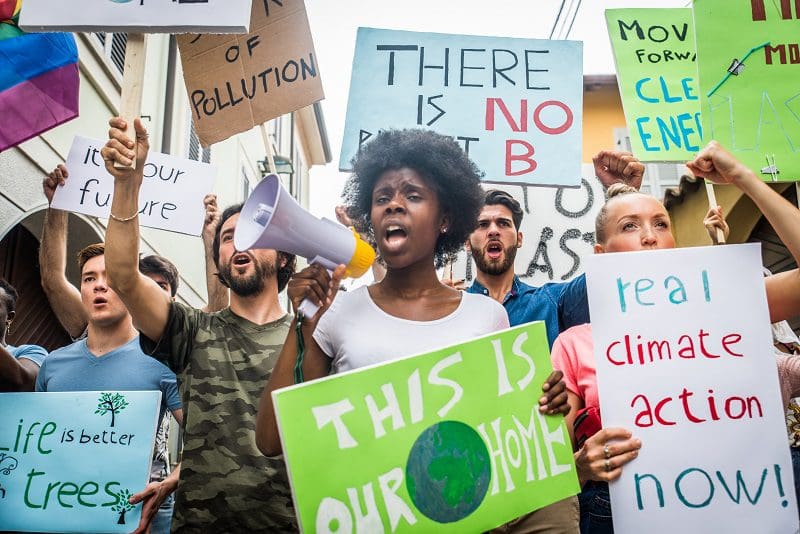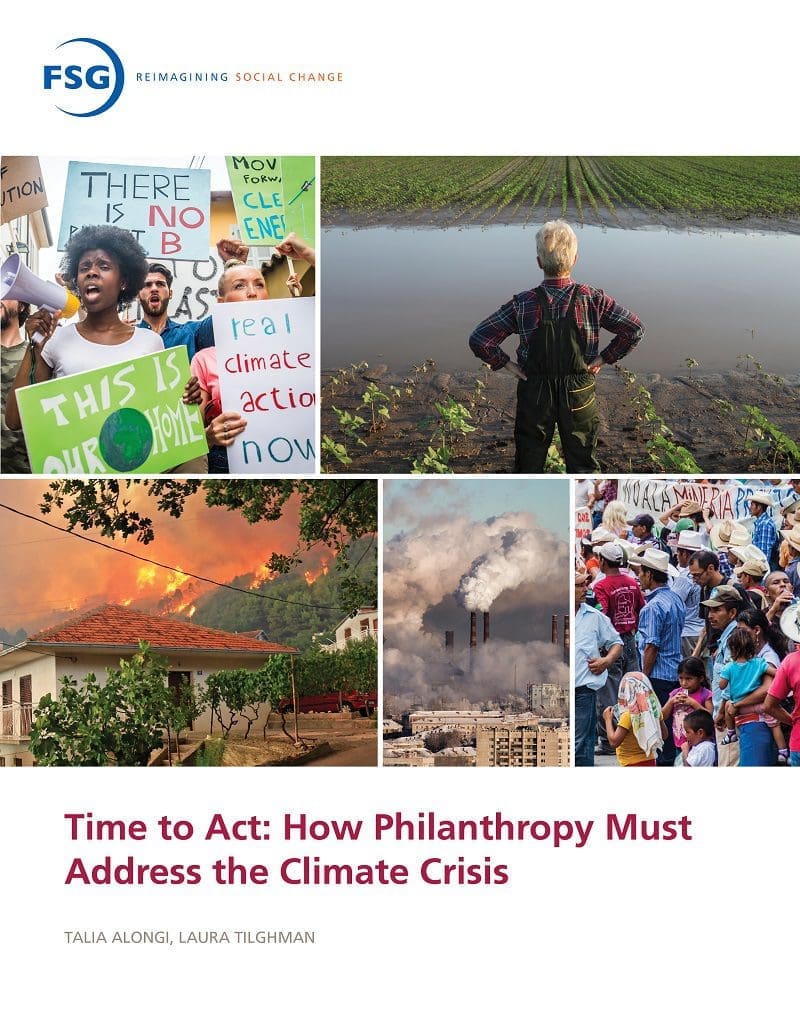As the climate crisis deepens, FSG shares this call to action for private foundations and donors, especially those that may not have focused on climate previously. The report presents a set of practical recommendations and vignettes to illustrate how a wide range of funders, varying in size, structure, and expertise, can further their existing missions by supporting effective climate action through grantmaking and investments. The report encourages funders to support frontline communities most affected by the climate crisis to transform economic, political, and social systems toward a more just, regenerative, and livable future.
Top Takeaways
- For the sake of our collective future, all philanthropic funders can explore their responsibility as “climate funders,” understanding the important systemic ways in which climate intersects with health, food systems, democracy, human rights, economic opportunity, and more.
- The time to act is now. Philanthropy has resources and expertise to offer, and there are frontline communities, movements, and other leaders already leading the way toward a sustainable future.
- Philanthropy needs to support climate-focused strategies that center the most impacted communities and reduce inequities. A focus on climate justice is not only a moral imperative but also key for an effective, successful strategy to mitigate climate pollutants and adapt to the ongoing impacts of the climate crisis.
By naming the climate crisis as a priority and sharing learning along the way, foundations can shift the narrative about who is a climate funder, what solutions to the climate crisis look like, and the importance of equity and justice.
This report was funded by the William and Flora Hewlett Foundation.


